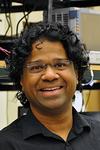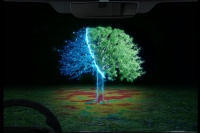Imagine driving down the road on a dark night.
Suddenly; your car slows and rolls to a gentle stop, just before a big deer that had been completely hidden from sight in the woods, darts out onto the road exactly where you would have been, if advanced thermal imaging sensors hadn't saved you from a potentially fatal crash.
Sound far-fetched?
Well, according to researchers at Purdue University, that could actually happen within the next few years, if their new HADAR technology is adopted by the automotive industry for both human-driven, and autonomous vehicles.
HADAR is short for "heat assisted detection and ranging"; and according to our featured guest today, Purdue University Professor of Electrical and Computer Engineering , Dr. Zubin Jacob, it takes existing thermal imaging to the next level with improved sensor hardware, and AI-powered software.
Listen now to find how HADAR could be used in many different industries, including medicine, and defense, but why Jacob's first goal, is to get it adopted by the automotive industry.

Dr. Zubin Jacob, Purdue University
Bio: Zubin Jacob is currently an Elmore Professor of Electrical and Computer Engineering (ECE) and Department of Physics (by courtesy) at Purdue University. He is the fellow of the Optical Society of America (now called Optica), winner of the Indian Institute of Technology- Bombay Young Alumnus Achiever award (2021), European Association of Antennas and Propagation Leopold Felsen award for excellence in electrodynamics (2021), DARPA Director’s fellowship (2019), National Science Foundation CAREER award (2017), DARPA Young Faculty award (2017) and Purdue ECE Outstanding Graduate Student Mentor Award (2018). He served on the editorial board of Journal of Optics from 2016-2018 and was the technical committee chair for nanophotonics at the IEEE Photonics meeting 2018 and OSA CLEO 2019-2020.

